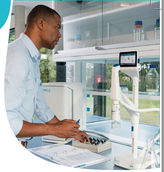EU's REACH imposes language requirements on chemical companies
Advertisement
The European Chemical industry stands on the cusp of a revolution in regulatory controls. The new EU regulatory network, known by the acronym REACH, comes in to force from 1st June 2007, after its initial publication in the European Commission's Official Journal on 30th December 2006. The official title of the regulatory controls is: REGULATION (EC) No 1907/2006 OF THE EUROPEAN PARLIAMENT AND OF THE COUNCIL of 18 December 2006 concerning the Registration, Evaluation, Authorisation and Restriction of chemicals (REACH). REACH runs to 849 pages and replaces over 40 pre-existing laws.
The two most important aims of REACH are to improve protection of human health and the environment from the risks of chemicals, while enhancing the competitiveness of the EU's chemicals industry. REACH will require a registration, over a period of 11 years, of some 30,000 chemical substances. The registration process requires the manufacturers and importers to generate data for all chemicals substances produced or imported into the European Union above one tonne per year. The registrants must also identify appropriate risk management measures and communicate them to the users. Amongst the myriad of controls and regulations facing chemical companies will be a requirement to take cognisance of the multiple language dimension of the European Union. In particular REACH requires that, when it comes to labelling or documentation relevant to the chemical substance, companies ensure:
- "The inscription must stand out clearly from its background and shall be in a language which is understood in the territory where it is being used."
- "The labelling of articles containing asbestos shall be in the official language or languages of the Member State(s) where the article is placed on the market."
- "The safety data sheet shall be supplied in an official language of the Member State(s) where the substance or preparation is placed on the market, unless the Member State(s) concerned provide otherwise."
Many chemical companies are now looking to source reliable, professional translation services to help them meet these demands. At Barcelona-based CPSL translations the sales team has noted a steady growth in inquiries.
"It started at the beginning of the year. We began to get tentative inquiries about our prices and processes. We have lately been seeing more requests for quotation (RFQ). The RFQ's seem to be mostly budgeting exercises at this point as companies try to get a handle on cost. We are happy to supply these RFQs, but expect that a lot will be coming in June when the regulation comes into an effect." said Maria Kania-Tasak, CPSL's head of international sales.
Chemical companies wanting to sell their products in within EU will have to translate into 23 official EU languages. These are Bulgarian, Czech, Danish , Dutch, English, Estonian, Finnish, French , German, Greek, Hungarian, Italian, Irish, Latvian, Lithuanian, Maltese, Polish, Portuguese, Romanian, Slovak, Slovene, Spanish, Swedish.


























































